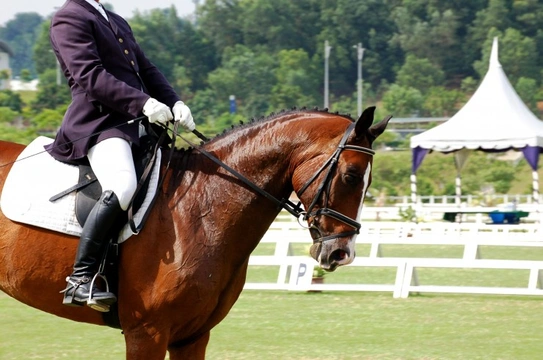
Interested in Joining an Equestrian Discipline in 2019?
Thinking of going affiliated in 2019? Here are some handy hints to get you started.
- The main affiliated equestrian disciplines are British Showjumping, (BS),British Eventing (BE) formerly horse trials and British Dressage (BD)
- There is also carriage driving via the British Driving Society, Endurance GB for long distance riding and vaulting organised by British Vaulting
- You will need to pay an annual fee to be a member, there are different levels of membership depending on what you want to do and how much you want to participate
- The horse or horses will also need to be registered and the owner too, if different to the rider
- Start-up costs are higher, not applicable to unaffiliated and entry fees will usually be higher as well
- The bottom end of affiliated and the top end of unaffiliated usually overlap in terms of rider participation
- Unaffiliated disciplines ‘borrow’ the rules of their affiliated cousins although they may not enforce them as strictly during a competition
- It is possible to either do dressage or show jump on what is described as a day ticket. You may still need to have part or full membership of the relevant competition body to do this. Any points or financial winnings are not eligible to be added to the horse’s record
- Each discipline is divided up into regions or geographical areas. There are a team of people who help run the sport at a local level. They are a great port of call for any questions or queries you may have when starting off
- Each discipline offers coaching and training events which are all disseminated down to local level. There are also social activities such as dinners, annual balls and outings
Getting started
- Look online and find your nearest event in the discipline you are interested in. Go along and watch, see how things are organised
- Speak to the local representative for your area with any questions you may have
- Hook up with a friend or find someone who is already affiliated with the discipline you want to join. Accompany them to a show as groom or tea maker. Listen to their informed commentary about how things work
Kit and equipment
- Make sure your hat is compliant with current standards and a body protector if applicable
- Certain dress is suggested and ‘form’, some items may be compulsory. Read your rulebook thoroughly to check both your turnout and your horse’s equipment are within the rules. Stewards on the day will check tack for legality
- At the start of the season, you will need to have your hat checked under the rules of some of the disciplines. There is now a universal sticker which will cover you in other disciplines and riding club and Pony Club which means you don’t have to have your hat checked and tagged repeatedly at each new/different event
Progression through the competitive levels
All the disciplines are graduated with the level of the sport becoming more difficult on an ascending basis. It is not necessary to start at the bottom but rules may prevent you from beginning competition at a higher level depending on your proven riding ability and the previous competition record of your horse.
All of the disciplines have pyramid coaching schemes and there will be a local network of trainers for your chosen discipline. Some may be multi-discipline and qualified instructors with other organisations such as the British Horse Society. Having lessons with an accredited discipline coach is a great way of benchmarking your current level and can act as a signpost when you are ready to move up. Coaches can offer useful advice about course builders and venues and often run clinics or academies which can be more economical to attend as well as introducing you to other local competition riders.
Know the rules
When you join a discipline, you will be sent a rule book. Read it and then keep it in the lorry or trailer. Most disciplines will summarise annual rule changes on their website so if you have read the rules in their entirety once, then you should only need a refresh on any updates.
There are anomalies. British Eventing has its own rules for the dressage and show jumping phases of eventing. Don’t assume BE dressage rules are the same as those for BD or unaffiliated dressage. There are two key differences which catch out many new to the sport. First, you may not have your dressage test ‘called’ at BE whereas you may for BD. Second, whilst you may warm up with a schooling whip at BE events, you may not carry a stick in the dressage phase of horse trials within the white boards.
What do affiliated sports offer?
Affiliation is a great way to progress and develop within your favourite equestrian discipline. The infrastructure that surrounds the competitive equestrian disciplines – insurance, First Aid provision, course building to name just a few elements – is of a very high standard. Don’t forget, the organisation you have just joined runs events at national level and has involvement with international events as well. That expertise and knowledge cascade down. At the grass roots level, riders can reap the benefits of organised competitive equestrian sport and all the additional advantages of training and social events in their local area.



